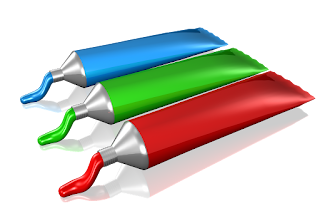Advantage And Disadvantage Of Pharmaceutical Emulsion
An emulsion is essentially a liquid preparation containing a mixture of oil and water that is rendered homogeneous by the addition of an emulsifying agent. The emulsifying agent ensures that the oil phase is finely dispersed throughout the water as minute globules. This type of emulsion is termed an ‘oil-in water’ emulsion.
 |
| Emulsion |
The oily phase (disperse phase) is dispersed through the aqueous phase (continuous phase). Generally all oral dose emulsions tend to be oil-in-water as the oily phase is usually less pleasant to take and more difficult to flavour. ‘Water-in-oil’ emulsions can be formed but these tend to be those with external uses.
Read Also: Advantage and disadvantage of liquid dosage form
Emulsion increases the stability of many drugs that are unstable in an aqueous solution. It improves the taste of objectionable medicinal agents and makes them more acceptable. It also improves penetration and spreadability. Emulsions enhance the rate and extent of absorption through the alimentary canal, improve the solubility of poorly water-soluble drugs, and can prolong drug action.
Advantages Of Emulsion
1. It is used to deliver drugs that are poorly soluble in water, but easily soluble in oil
2. It is possible to include two incompatible ingredients/drugs in a dose, one in each phase of the emulsion
3.
The solubility of drugs can provide more bioavailability due to which emulsion can provide increased bioavailability of those drugs that have low aqueous solubility
4. The pharmaceutical emulsions can be used to mask the unpleasant taste and odor of the active pharmaceutical ingredients by dissolving the API in the internal phase of an o/w emulsion, the external phase contains the suitable sweetening and flavoring agents
5. It can be formulated as sustained-release medication and can be prepared with commonly used excipients
6. Drugs that are more stable in the oily phase compared to the aqueous phase may show better stability in the emulsion dosage form
7. Emulsions can be used to administer drugs to patients who have difficulty swallowing solid dosage forms
8. It has a simple and self-administration of the medication and does not produce any kind of pain like the parenteral route (Injection)
9. Are simple, have few Ingredients
10. Emulsions may be commonly used to administer oils that may have a therapeutic effect
11. If the therapeutic agent is irritant when applied topically, the irritancy may be reduced by formulation of the drug within the internal phase of an o/w emulsion
12. Emulsions are employed for total parenteral nutrition
Read Also: All about pharmaceutical emulsion
13. Emulsions provide protection to drugs which are susceptible to oxidation or hydrolysis.
Disadvantages Of Emulsion
1. Emulsion is thermodynamically unstable and attempting to stabilize it requires calculation of primary emulsion formula and technical expertise resulting in the emulsion being a more costly product than other dosage forms
2. A uniform and precise dose of the drug cannot be obtained; it needs to be measured at each time of dose with a measuring device
3. Emulsion medications are heavy, prone to container breakage, and difficult to transport
4. The storage conditions of the emulsion can affect stability therefore it requires special storage conditions
5. If the preparation is not shaken well before use, the dose may vary each time
6. It is liable for microbial contamination that can lead to cracking

Comments
Post a Comment
Please have your say